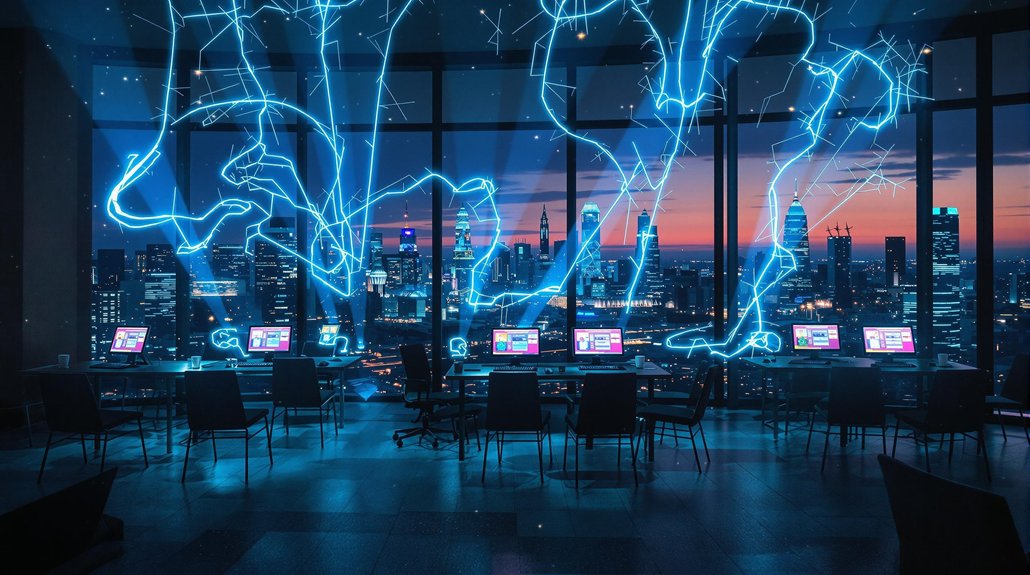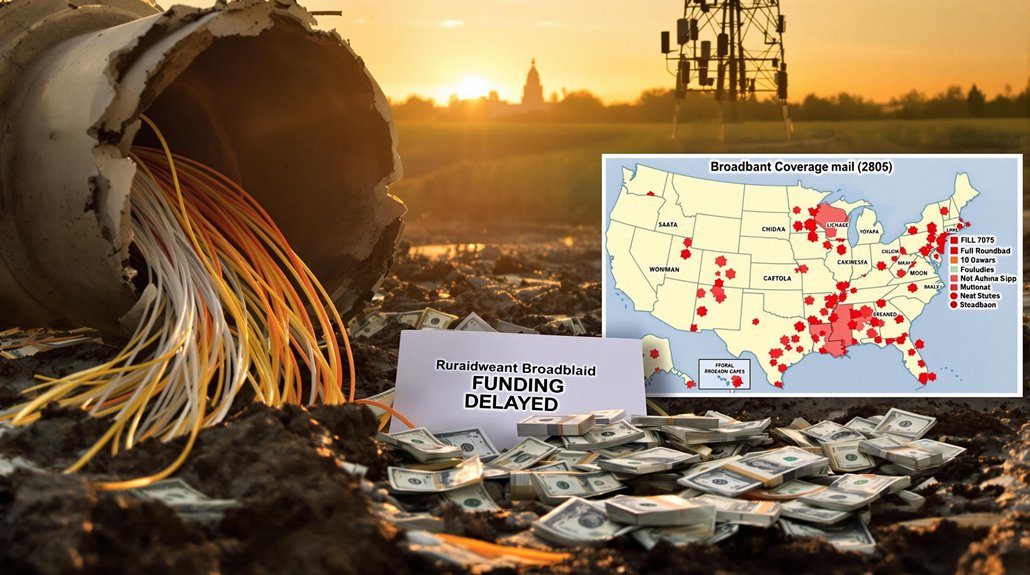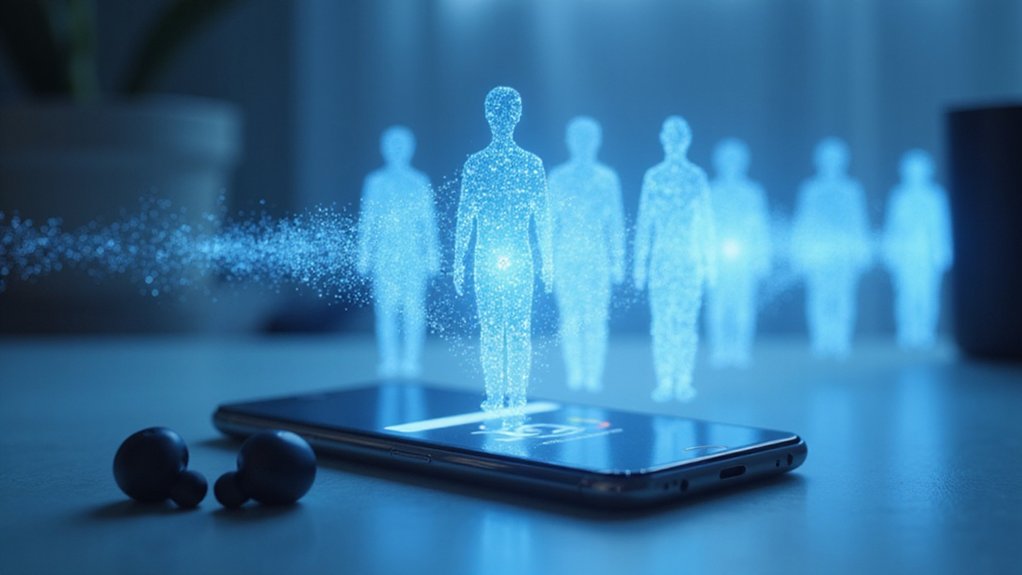The robot invasion isn’t coming—it’s here. While humans scroll less, post less, and generally check out of the digital wasteland they created, AI is moving in like squatters in an abandoned mall. The numbers tell a weird story: 1.8 billion people have tried AI tools, but social media engagement is flatlining. Facebook’s getting grayer. TikTok’s algorithm is desperately throwing content at walls to see what sticks.
Here’s the twist—only 3% of AI users actually pay for it. That’s right, billions of people are using ChatGPT to write their emails, but almost nobody wants to fork over twenty bucks a month. Meanwhile, the AI market hit $391 billion in 2025 and is growing at a ridiculous 35.9% annually. Someone’s making money, just not from regular folks. The industry expects to balloon to 1.81 trillion by 2030, suggesting the real money isn’t in subscriptions but in enterprise deals and infrastructure.
The workplace is where things get interesting. Ninety percent of AI users say it makes their work easier. Translation: humans are outsourcing the boring stuff to machines while they do… what exactly? Higher-order cognitive tasks, apparently. Sure. More like longer lunch breaks. Seventy-five percent of employed adults use AI, while 85% of students are already hooked on these digital assistants.
Companies are all in. Eighty-three percent call AI a top priority. Seventy-two percent already use it somewhere in their business. Behind the scenes, AI algorithms quietly monitor your financial transactions to detect fraud before you even notice anything suspicious. Netflix rakes in a cool billion annually just from AI recommendations. Even doctors are letting computers help diagnose patients—38% of medical providers, to be exact.
The generational split is predictable. Sixty-five percent of AI users are Millennials or Gen Z. Young people adopt, old people resist, same song since the invention of fire.
But here’s where it gets dystopian: as humans retreat from their digital lives, burned out on endless content and fake connections, AI fills the void. Bots talking to bots. Algorithms feeding algorithms.
The digital terrain isn’t dying—it’s just changing tenants. Humans built this massive online infrastructure, got tired of maintaining it, and now the machines are keeping the lights on. By 2031, over 1.1 billion people will use AI regularly. Whether anyone will still be genuinely connecting online is another question entirely.









